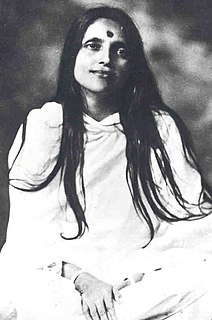A Quote by Bhai Sahib Singh
In the whole of the universe there are only two: the lover and the beloved.
Related Quotes
The curt truth is that, in a deep secret way, the state of being beloved is intolerable to many. The beloved fears and hates the lover, and with the best of reasons. For the lover is forever trying to strip bare his beloved. The lover craves any possible relation with the beloved, even if this experience can cause him only pain.
When the rose is gone and the garden faded you will no longer hear the nightingale's song. The Beloved is all; the lover just a veil. The Beloved is living; the lover a dead thing. If love withholds its strengthening care, the lover is left like a bird without care, the lover is left like a bird without wings. How will I be awake and aware if the light of the Beloved is absent? Love wills that this Word be brought forth.
The contrast between the two, the sweetness and the badness, wrenches the heart of the lover as such sweetness on its own would not, and the lover shudders all the more at dread of the beloved's recklessness, for the sake of the sweetness that is there, and the shudder only makes more violent the shuddering that announces love.
Pleasure and pain at once register upon the lover, inasmuch as the desirability of the love object derives, in part, from its lack. To whom is it lacking? To the lover. If we follow the trajectory of eros we consistently find it tracing out this same route: it moves out from the lover toward the beloved, then ricochets back to the lover himself and the hole in him, unnoticed before. Who is the subject of most love poems? Not the beloved. It is that hole.
There are three kinds of love;
unselfish, mutual, and selfish.
The unselfish love is of the highest kind;
The lover only minds the welfare of the beloved and does not care for his own sufferings.
In mutual love the lover not only wants the happiness of his beloved;
but has an eye towards his own happiness also. It is middling.
The selfish love is the lowest. It only looks towards its own happiness,
no matter whether the beloved suffers weal or woe.
When you have reached the point where you no longer expect a response, you will at last be able to give in such a way that the other is able to receive, and be grateful. When Love has matured and, through a dissolution of the self into light, become a radiance, then shall the Lover be liberated from dependence upon the Beloved, and the Beloved also be made perfect by being liberated from the Lover.
In water and on land, in trees, shrubs, and creepers-everywhere in the whole universe abides my Beloved. Further, all the various forms and modes of being that we behold, are they not expressions of my Beloved? For there is none save Him. He is smaller than the smallest, and greater than the greatest.
And then the sly arch-lover that he was, he said the subtlest thing of all: that the lover was nearer the divine than the beloved; for the god was in the one but not in the other - perhaps the tenderest, most mocking thought that ever was thought, and source of all the guile and secret bliss the lover knows.






























